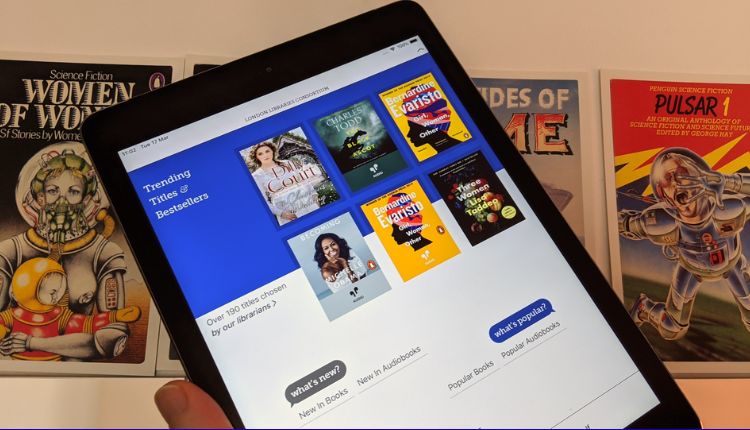Today, the concept of online free reading has become a global phenomenon, offering readers instant access to thousands of titles across genres without spending a penny. From classic literature to modern novels, educational resources to comics, the online reading ecosystem has opened new doors for students, learners and avid readers alike. The convenience of online reading has also encouraged people to rediscover their love of literature in a technology-driven age.
Understanding what online free reading means
Online free reading refers to the ability to access and read digital books, articles, or other forms of written content over the Internet without having to pay. Websites, apps, and digital libraries provide this access through various licensing models or partnerships with authors and publishers.
Readers can enjoy full books or chapter previews, often without any registration fees or hidden costs. This concept has gained immense popularity for its affordability and availability, especially among students and readers from developing regions.
Benefits of using online free reading services
The biggest advantage of online free read services is accessibility. With just an internet connection, users from anywhere in the world can explore millions of sites of various topics and genres. It saves time, eliminates the need to carry physical books, and often provides personalised recommendations to improve the reading experience.
Additionally, these platforms promote literacy by making quality reading materials available to everyone regardless of their economic background. Another key benefit is environmental sustainability, as digital reading reduces paper consumption and promotes environmentally friendly practices.
Popular platforms that offer free online reading
Many well-known platforms provide free online reading options that cater to a diverse audience. Project Gutenberg, one of the oldest and most trusted digital libraries, offers over 60,000 free e-books, including classics and historical works. Google Books also allows users to read parts or whole books for free, depending on copyright.
Popular among young readers and writers, Wattpad features user-generated stories across genres such as romance, fantasy, and mystery. For comic lovers, platforms like Webtoon and Tapas provide engaging free content that combines art with storytelling. Academic readers can access open-source academic books and journals on sites such as Open Library and Bookboon.
Free online reading for students and researchers
Students, educators, and researchers benefit greatly from the availability of free online reading materials. Academic resources, research papers, and e-textbooks are often expensive in print, but online free reading platforms make them accessible to everyone.
Open-access educational initiatives, such as Coursera’s free reading resources or Google Scholar’s indexed publications, provide students with updated and credible content. In addition, online libraries such as JSTOR and ResearchGate sometimes allow limited free access to scholarly articles, enabling knowledge sharing and promoting inclusive education worldwide.
How online free reading promotes independent learning
The rise of online free reading has allowed people to learn independently at their own pace. Students can explore new subjects without having to enrol in formal courses or pay for expensive materials.
Whether it’s learning a new language, studying history, or exploring self-help guides, free reading platforms encourage curiosity and continuous learning. Many people who were once limited by the availability of local libraries now have global access to the same books and research materials as students at major universities. This accessibility fosters creativity, critical thinking, and a lifelong love of learning.
Free online reading challenges
Despite its many advantages, the online free reading ecosystem faces some challenges. Copyright restrictions limit the number of books available to read for free, especially newer titles. Some websites may contain pirated or unauthorised content, which raises legal and ethical issues.
In addition, long-term reading online can cause fatigue and eye strain, which reduces reading comfort compared to physical books. Quality control is also a challenge, as not all freely available content is edited or verified. Readers must be careful to use legitimate sources and verify the authenticity of what they read.
Tips for maximizing your online free reading
To get the most out of free online reading, readers should explore multiple trusted platforms and use reading apps that support customization. By adjusting the font size, background color, and reading mode, you can improve comfort and focus. Save or bookmark your favorite titles for quick access later.
Using the offline reading features can also help when your internet connection is limited. It’s a good idea to combine online reading with note-taking or highlighting tools to retain important information. Finally, joining online reading communities or discussion forums can improve understanding and motivation.
The role of free online reading in the future of reading
The future of reading is undeniably digital, and online free reading platforms are at the center of this evolution. As technology continues to advance, AI-driven recommendation systems and interactive reading experiences will make digital reading more engaging.
Educational institutions are increasingly incorporating open-source materials into their curricula, and governments are supporting digital literacy programs. With the growing popularity of audiobooks and e-readers, the trend of online free reading is expected to continue to expand, bridging the gap between knowledge and accessibility for millions of people around the world.
Why free online reading promotes a global reading culture
The universal availability of online platforms for free reading has created a global reading culture that transcends language and geography. People from different countries can read translated works, share their reviews and participate in digital book clubs.
This global connection revived interest in literature, poetry, and storytelling traditions. It also helps preserve ancient texts and historical archives by digitizing them for future generations. By offering free access, these platforms ensure that culture, creativity and knowledge remain freely shared resources available to all.
The Bottom Lines
Free online reading options have revolutionized how people interact with written content. They have made literature, education, and research more inclusive, accessible and sustainable. While there are copyright and quality issues, the overall advantages far outweigh the disadvantages. The convenience of accessing countless books from a single device continues to inspire new and lifelong readers.

